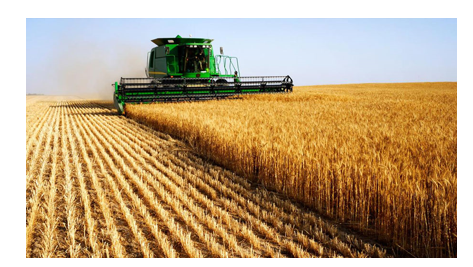INP-WealthPk
Arooj Zulfiqar
Pakistan's agriculture sector is embracing modernization and innovation. This shift towards modern farming techniques is expected to boost the crop yields in the coming months, reports WealthPK.

According to the data released by the Ministry of Finance in a monthly outlook for September, “In FY2025 (July-August), imports of agricultural machinery and implements saw a remarkable increase of 105.6%, amounting to $17.6 million, compared to the same period last year. This surge reflects the growing commitment of farmers and stakeholders to invest in mechanization for enhanced productivity. This increase in investment in modern farming technologies will play a critical role in enhancing productivity and ensuring long-term sustainability in the agricultural sector. The adoption of these technologies is particularly crucial, as Pakistan looks to improve its agricultural output and mitigate the impact of changing climate patterns. However, despite these positive developments, the sector faces challenges in the form of decreased fertilizer offtake. Urea consumption during the Kharif season of 2024 (April-August) stood at 2,381 thousand tonnes, reflecting 13.6% decline compared to the same period in 2023. Similarly, the offtake of Di-ammonium Phosphate (DAP) decreased by 21.9% during the same period.
The decline in fertilizer offtake has been attributed to multiple factors, including the late sowing of Kharif crops, driven primarily by climate change disruptions. Additionally, lower wheat prices and reduction in cotton acreage further contributed to reduced demand for fertilizers during this season. The challenges of climate variability, combined with the changing market conditions, continue to exert pressure on the agriculture sector, particularly in maintaining consistent crop production. Despite these setbacks, the sector’s increased focus on mechanization and modern farming practices offers promising prospects for growth. As Pakistan continues to invest in agricultural innovation, the adoption of new technologies and equipment is expected to mitigate some of the adverse effects of climate change and improve overall yield. With further investments and continued modernization, the agriculture sector is poised to overcome the current challenges and pave the way for increased productivity in the years to come.
Credit: INP-WealthPk













